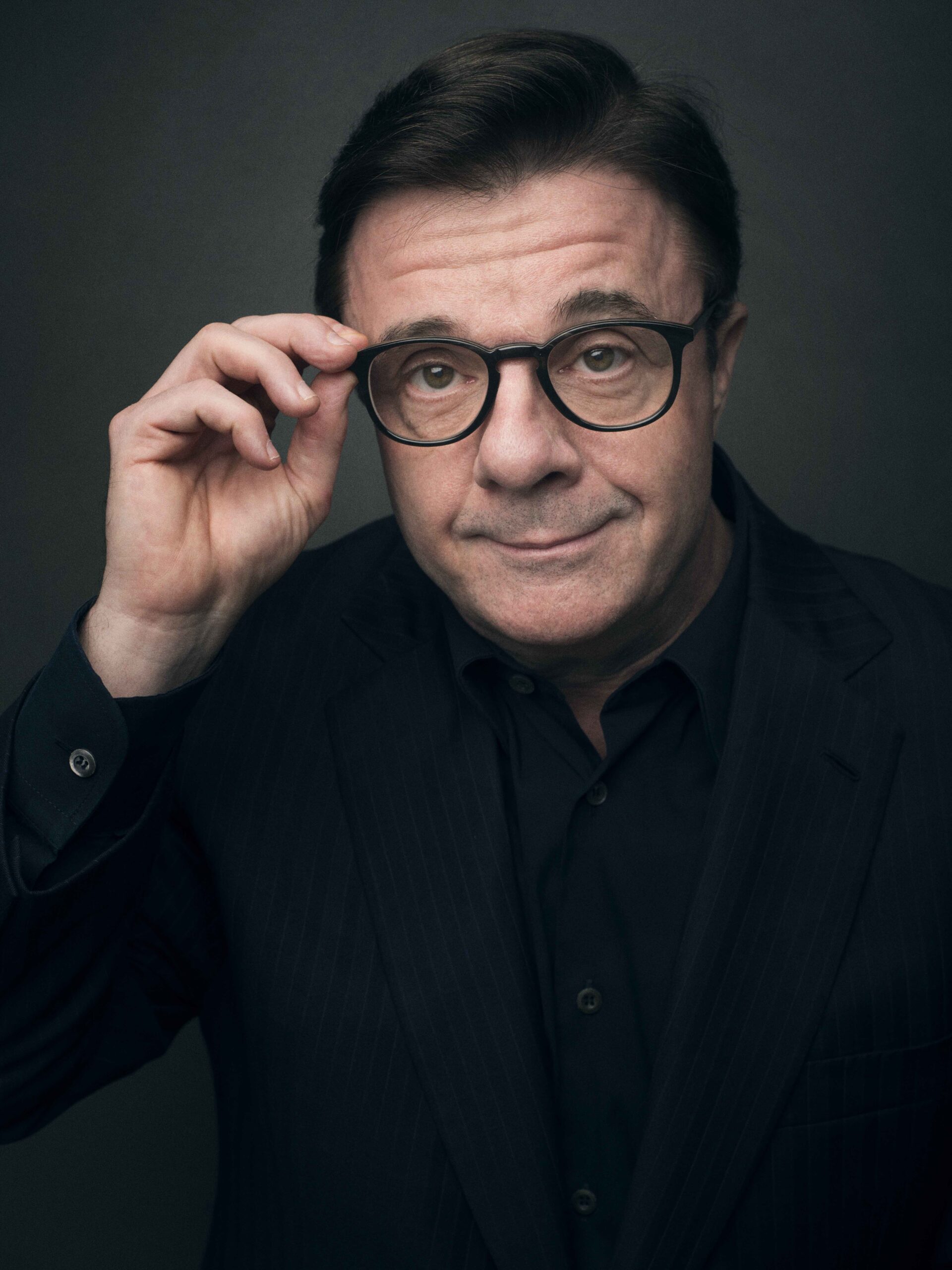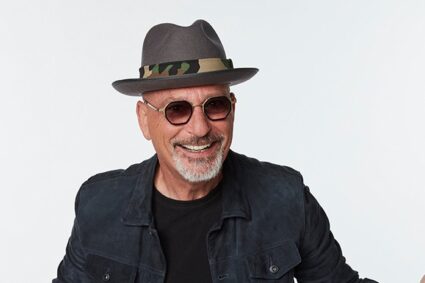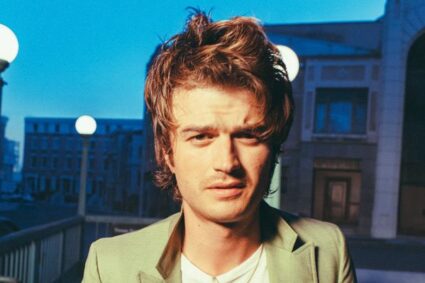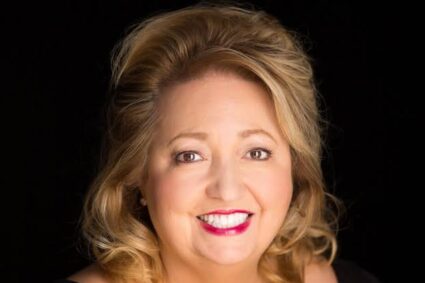
Photographed by Luke Fontana
On today’s episode, we are in the presence of Broadway royalty. He starred in the Broadway debut 20 years ago with Sondheim’s The Frogs and has been in the revival of A Funny Thing Happened on the Way to the Forum, The Front Page and Angels in America. He’s a three-time Tony award winner and later this month, he’s being honored as the 13th recipient of the Signature Theatre’s Stephen Sondheim Award.
My friends, let’s welcome to SNAPSHOTS – the incredible Nathan Lane!
You are the 13th recipient of this prestigious award from the Signature Theatre which includes such luminaries as composer John Kander, Audra McDonald, Carol Burnett and the late Chita Rivera. I got to ask that you’re not superstitious of being the 13th member, right?
Oh, number 13. Yes. Oh, lucky number 13. Well, I hadn’t really, I wasn’t aware that I was the 13th. I hope it’s not a not a dark omen.
What are your feelings of receiving the honor?
Well, I have very nice feelings. It’s very, it’s very gratifying especially because it’s named for one of my heroes, Steve Sondheim, whom I was lucky enough to work with many times over the years. And so it’s very meaningful.
You are a frequent collaborator with Stephen Sondheim, and you won his first Tony Award for his performance as Pseudolus in the 1996 revival of A Funny Thing Happened on the Way to the Forum. What piqued your interest in playing the role?
Well, Jerry Zaks asked me to do the there was a workshop in 1989 of a new musical he had written called “Assassins.” So, we did that workshop. And that was really the first time I met Steve and he was incredibly kind and supportive. And then I had done I had done “Guys and Dolls” with Jerry and then we’d done a Neil Simon play. And then he said, “what do you want to do next?” which was a lovely thing to hear. And he said “we should do A Funny Thing Happened on the Way to the Forum.” .” I had seen the first revival of it in 1972 when I was in high school with Phil Silvers playing Pseudolus. The show had won Tonys for Phil Silvers and the best revival, but they weren’t selling tickets.
It was in the dog days of summer and just wasn’t selling after the awards. They had a free Fourth of July matinee as a publicity stunt. I got online with a couple of friends. And when I got in, I walked in the doors, and then they close them on my friends. And when they got to me, they had reached capacity. So I was in standing room, and I watched Phil Silvers do the show. And he was the greatest, he was better. He was better than Zero (Mostel), better than me, better than anybody. He was hilarious.
It was a dream to kind of take on that role. Just before that, I had done “The Birdcage” and Steve wrote, a few songs for it and only one of them was used. You know, he’s just a genius. Just a very nice genius. He was a hero to me. I mean, when growing up, I had listened to all the cast albums and the shows he had written. So, to get to work with him and get to know him a little was just unbelievable.
And that leads to a great segue, because one of my favorite roles of yours is Albert in The Birdcage and Sondheim written Little Dream specifically for the movie. Talk about performing the song in the film.
Well, you know, the song is a rehearsal scene and it’s sort of the backdrop to what’s the other stuff that’s going on. And he is very upset with a young dancer who has to work. There was chewing gum, and there’s a lot of rehearsal tension. So yes, you only get little bits of the song, but it’s a sweet little number. In the movie, it’s supposedly Robin’s character has written that song. I remember that. It’s not so much about the song.
What I remember is that that morning, it was supposed to be an elaborate. I was going to be in like Marlene Dietrich drag and it was a whole different kind of thing. In the morning, Mike Nichols changed his mind and said, “this is this is all wrong.” And everybody including Ann Roth, the costume designer, everybody had to scramble and he said, “it should be a rehearsal, they should just be rehearsing this song.” They had to go out and find me some sort of Flashdance leg warmers, tights and change the whole look of the thing. Mike gave him (Robin) this sort of improvisatory moment where he did the history of dance in like 30 seconds.
And then at a certain point, it seemed like he was going to cut that too since that is not in character. And so he said, “there’s no ending, we don’t have an ending to the improv.” And so we were all standing around and suggesting things and I said, “you know, a director once said to me, I love what you’re doing, but keep it all inside.” So, he said, “Yeah, say that.” So that’s and that became the end of the scene. The song was a sweet little number but there were a lots of other things going on around the number.
It was 20 years ago that you began revising and expanding Sondheim’s book of The Frogs into a two-act structure and playing Dionysus. Why do you feel that Stephen is one of the most important figures of musical theater history?
Why, just his combination of his musicianship and his extraordinary lyric writing, which he really just wanted to compose lyrics. Writing was just something he had to do, as well. But he was one of the most brilliant at it. And, I just think, as his songwriting in terms of being a dramatist, his songs have to tell a story, it’s like a little one-act play – a beginning, a middle, and an end. He was drawn to such interesting subject matter and he goes off the beaten path.
He and Hal Prince did all of this groundbreaking stuff, starting with “Company.” I went to see “Pacific Overtures.” It was it’s one of the most stunning afternoons I’ve ever had in the theater. It was such a gorgeous production. And I remember sitting down the matinee and there was a couple behind me. As the lights were going down, the wife turned to the husband and said, “Oh, Harry, they’re all Japanese. I thought this was South Pacific.” So look, they were ahead of their time. People were ready for what they were doing, but my God, then comes “Sweeney Todd.”
I remember seeing it, I’d only been in New York about a year at that point. And the Sweeney Todd previews were unbelievable. You know, Len Cariou and Angela Lansbury. It’s just one brilliant show after another and in such different genres. He was just a great collaborator. And he’s was a very kind person, very compassionate and supportive of actors and wanting to help actors. And because, it’s challenging material but it is, indeed, the kind of stuff that once you learn it, you never forget it. It’s so brilliantly written. Well, I think he stood the test of time. And, there’s just nobody who has come along that that is quite like him with that kind of genius.
Now, you’ve been you began your theater career on an opera I off Broadway production of Midsummer’s Night Dream back in 1978. And here you are, six-time nominee, three Tony wins, a career that expands all genres. If you have to give advice to the up and coming future star of the stage, what would you tell them? And why?
You know, I can’t even imagine, starting out in the theater, now the theater has changed so much. But, you know, you have to do it or all your die. If there’s anything else you can think of that you could also do, you should probably do that because it’s such a difficult business to be a part of. I just think, you have to learn to be a professional, come prepared, come with enthusiasm & idea and be a good collaborator, like Steve Sondheim. Be kind and work well with others but come with passion. Then hopefully, work with the best people you can, you’ll learn from them. I just learned from working with some really great people over the years.
Thank you Nathan, the 13th honoree of the Stephen Sondheim Award. I am looking forward to seeing you on stage


